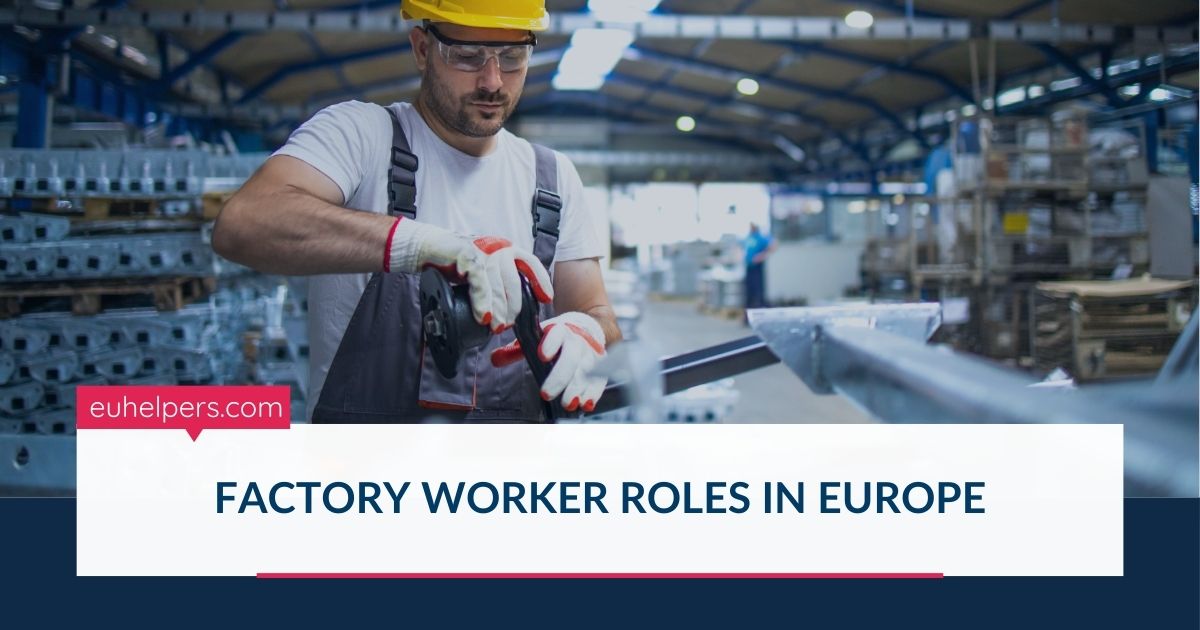Factory work is an essential part of Europe’s industrial landscape, with factories producing everything from electronics and machinery to consumer goods and automotive parts. Within these factories, a wide range of roles is required to keep production running smoothly and efficiently. From entry-level production operatives to highly skilled technicians and supervisors, each role plays a critical part in the manufacturing process.
Here’s a closer look at some of the most common factory worker roles in Europe and their key responsibilities.
Common Factory Roles
European factories typically employ workers across several categories, each with distinct tasks and skill requirements:
1. Production Line Operatives
-
Machine Operators:
Responsible for running machinery that processes materials, such as welding machines, presses, or automated assembly systems. They monitor machine performance and make adjustments as needed to maintain product quality and workflow. -
Assemblers:
Assemble parts or components into finished products. This work is often done on conveyor belts or in assembly teams, requiring coordination and attention to detail. -
Production Workers:
Carry out a variety of tasks along the production line, including handling raw materials, packaging finished products, and labeling goods for shipment.
2. Specialized Roles
-
Quality Control Inspectors:
Ensure that products meet established quality standards by carefully inspecting components and finished goods, identifying defects, and working with production teams to resolve issues. -
Maintenance Technicians:
Focus on keeping factory equipment in good working order. They perform regular maintenance, troubleshoot mechanical issues, and carry out repairs to minimize downtime and keep operations running smoothly. -
Technicians:
Work with specialized equipment and systems, often requiring technical expertise in fields like electronics, robotics, or automation. These workers help maintain and optimize complex production processes.
3. Additional Roles
-
Warehouse Workers:
Handle the storage, organization, and movement of materials and finished products within the factory and prepare goods for distribution. -
Shipping and Receiving Clerks:
Manage incoming and outgoing shipments, ensuring materials arrive on time and finished products are shipped efficiently. -
Supervisors:
Oversee production teams, manage workflow, and ensure that safety protocols, production targets, and quality standards are met. They play a key role in coordinating between workers and management.
General Responsibilities Across Roles
Regardless of specific job titles, factory workers in Europe are generally expected to:
-
Follow safety regulations and protocols to maintain a safe working environment.
-
Keep work areas clean and organized to support efficient operations.
-
Communicate effectively with supervisors and colleagues to ensure smooth coordination.
-
Follow instructions and work efficiently, often meeting production deadlines and targets.
The manufacturing sector in Europe offers a diverse range of job opportunities, from hands-on production roles to technical and supervisory positions. Whether operating machinery, assembling products, maintaining equipment, or overseeing teams, factory workers are essential to ensuring the success and competitiveness of Europe’s industrial sector.
For those interested in stable employment, skill development, and opportunities for advancement, factory work continues to be a promising and dynamic field.

